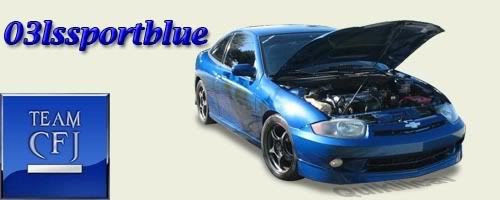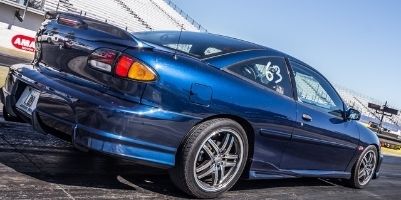Cruze Clean Turbo Diesel Delivers Efficient Performance
Thursday, Feb. 7, 2013
CHICAGO - The all-new 2014 Chevrolet Cruze Clean Turbo Diesel features an advanced 2.0L clean diesel engine that will offer an estimated 42 mpg highway with an automatic transmission and expected best-in-segment range based on GM testing. Clean diesels generate at least 90 percent less Nitrogen Oxide (NOx) and particulate emissions when compared to previous-generation diesels. It is the cleanest diesel passenger car engine ever produced by General Motors.
Cruze's 2.0L turbo-diesel is based on proven architecture already used in European models, where approximately 40 percent of all Cruze models sold feature a diesel engine. Collaborating with Italian and German engineering groups, GM's diesel experts in the United States adapted the engine to accommodate more stringent diesel emission standards and a wider range of driving conditions - including colder climates and higher altitudes - for the United States and Canada.
"This Cruze Clean Turbo Diesel represents a new era in diesel performance for American cars," said Jens Wartha, GM chief engineer. "We've adapted a proven engine from Europe, the world's diesel capital, and married it with the emissions-reducing technology that was perfected in the United States. It's a great example of how Chevrolet's global resources work harmoniously to produce the right product at the right time and for the right market."
Cruze's new 2.0L turbo-diesel delivers a segment-leading estimated 148 horsepower (110 kW) and estimated 258 lb-ft of torque (350 Nm). Peak torque is achieved at a low 2,000 rpm for a sustained feeling of power on demand at almost all speeds - particularly when passing or entering a freeway onramp.
The engine has an overboost feature capable of increasing torque to an estimated 280 lb-ft (380 Nm), for stronger acceleration periods of about 10 seconds.
"With the benefit of continuous refinement in other markets, the 2.0L turbo-diesel comes to the United States and Canada with performance that will impress," said Mike Siegrist, assistant chief engineer. "It is powerful, efficient and clean. It will change perceptions of what a diesel car can be while giving customers another fuel efficient choice in the Cruze lineup."
Cruze models in the United States and Canada offer a 1.4L turbo, a 1.4L Eco model and 1.8L naturally aspirated engine.
The 2.0L turbo-diesel engine provides greater fuel economy than a comparably sized gasoline engine through greater thermal efficiency, a higher compression ratio and an unthrottled combustion process. It features an iron cylinder block and a forged steel crankshaft, each designed to stand up to the greater cylinder pressures that come with a turbo-diesel engine.
A lightweight aluminum cylinder head and aluminum intake manifold contribute to the engine's comparatively low weight of 408 pounds (185 kg), helping the Cruze Clean Turbo Diesel deliver a balanced ride with outstanding handling characteristics. Additional highlights include:
• Dual overhead camshafts with four valves per cylinder and maintenance-free hydraulic lifters with low-friction roller-finger followers
• Quiet belt-driven cams/valvetrain with high-strength belt material and tensioner rated for 100,000 miles
• High-strength aluminum pistons with reinforced top ring and integral combustion bowl design
• Central direct injection, with the injector positioned in the middle of the cylinder, with the bowl in the piston serving as the combustion chamber. This enables a high 16.5:1 compression ratio that enhances power and combustion efficiency
• Variable-swirl intake manifold design, which optimizes air charge mixture motion in the cylinders for a more-efficient combustion that enhances performance and reduces emissions
• Common-rail fuel system with Piezo fuel injectors that create multiple injections per combustion for greater performance, combustion efficiency and quietness
• Variable-nozzle turbocharger that broadens the engine's torque curve, particularly at low rpm, and supports greater high-rpm horsepower. It is mounted close to the exhaust outlet of the engine for quicker "spool up" of the turbine and faster "light off" of the exhaust catalyst
• Intercooling system produces a cooler, denser air charge for greater power
• Piston oil jets that help reduce friction and optimize piston temperature for greater performance and efficiency
• Turbocharger bearings are oil-lubricated and cooled via an oil cooler
• Variable-displacement oil pump helps save fuel by optimizing the oil pressure, which reduces friction
• Vacuum pump designed for lower engine friction
• Ceramic glow plugs, which provide greater cold-start performance over conventional metal glow plugs (an engine oil heater is offered for cold climates)
• B20 bio-diesel compatibility.
Quiet, smooth performance is enabled by a number of features on and around the engine. There are also sound-absorbing features added to the Cruze, specific to the diesel model, including a unique dash mat, hood blanket and more.
A precise exhaust gas recirculation control system features a high-capacity cooler and bypass feature that enable the engine to meet United States and Canada's tough diesel emissions regulations. There is also an exhaust after-treatment system is similar to what is used on Chevrolet's heavy-duty trucks and vans equipped with the Duramax diesel, including a diesel particulate filter and urea injection, that helps make the 2.0L the cleanest diesel passenger car engine ever from GM.
An approximately 4.5-gallon (17 liters) tank in the Cruze Clean Turbo Diesel holds enough diesel emissions fluid to provide at least 10,000 miles (16,000 km) of driving between refills. The system is also designed for servicing to coincide with oil changes, for greater convenience.
DIESEL FAST FACT: General Motors produces approximately half a million small diesel engines around the globe every year.

Edited 1 time(s). Last edited Thursday, February 07, 2013 8:35 AM
- Attachments
- 2014-GM-I4LUZ-001-medium.jpg (162k)
 "Only two things are infinite, the universe and human stupidity, and I'm not sure about
"Only two things are infinite, the universe and human stupidity, and I'm not sure about
the former." - Albert Einstein

















